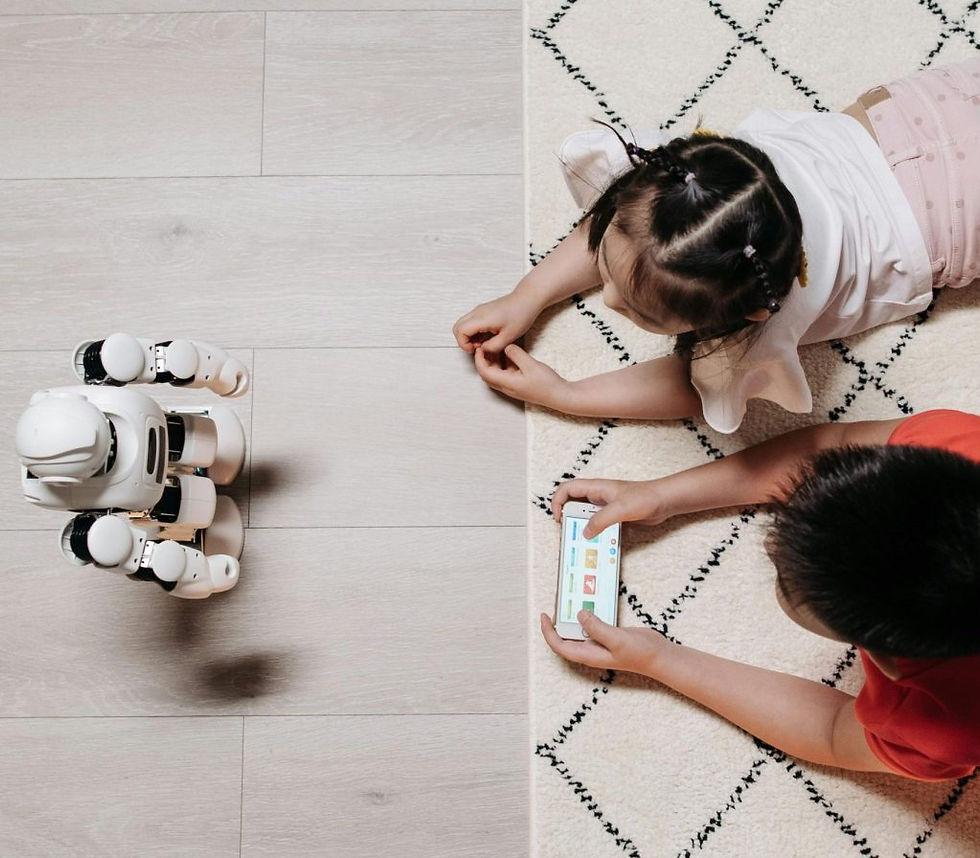Minimalism is not just a trend!
- Jun 9, 2024
- 4 min read
In a world constantly bombarded by consumerism, the minimalist lifestyle stands out as a simple yet impactful approach to living sustainably. At its core, minimalism is about intentionally reducing excess in your life—whether it’s physical possessions, commitments, or even mental clutter—to focus on what truly matters. In the context of environmental sustainability, minimalist living offers a practical solution to reducing waste, conserving resources, and creating a more balanced relationship with our planet. Through our “Minimalist Living Project”, we’ve seen firsthand how embracing minimalism can help individuals live more consciously and reduce their environmental footprint.
Adopting a minimalist lifestyle can have a profound impact on the environment. The key principle of minimalism—owning less—directly reduces the demand for mass production of goods, which in turn cuts down on energy consumption, raw material extraction, and pollution. By being more intentional with our purchases and focusing on quality rather than quantity, we actively contribute to reducing the waste associated with fast fashion, overconsumption, and disposable products.
Here are some of the ways minimalist living contributes to sustainability:
Reduction in Consumption: A minimalist approach encourages individuals to carefully evaluate their needs and make thoughtful purchases. By prioritizing longevity, quality, and necessity, we can significantly reduce the consumption of resources.
Waste Reduction: Fewer possessions mean less waste. By purchasing fewer items, we reduce the volume of products that end up in landfills. Furthermore, minimalism promotes the reuse, repurposing, and recycling of items that are still functional but no longer serve their original purpose.
Lower Carbon Footprint: Minimalists often adopt a more sustainable lifestyle, from choosing eco-friendly products to reducing energy consumption in their homes. By owning fewer items, there is less demand for the energy-intensive production processes that contribute to climate change.
More Mindful Consumption: Minimalism encourages people to focus on what truly brings value to their lives, such as experiences, relationships, and personal growth. This shift in focus from material goods to meaningful experiences leads to a more sustainable and fulfilling lifestyle.
While minimalism is a powerful tool for environmental protection, it also offers several personal benefits:
Financial Savings: By prioritizing quality over quantity, you spend less on unnecessary purchases. This financial freedom can help you redirect resources toward experiences, savings, or investments that align with your values.
Mental Clarity: A decluttered physical space often leads to a decluttered mind. Minimalists report feeling less stressed, more focused, and better able to enjoy life in the moment.
Healthier Living: Minimalism often leads to more intentional habits. From eating simpler, more nutritious meals to spending time outdoors, minimalists tend to lead healthier, more balanced lives.
Transitioning to a minimalist lifestyle doesn’t mean you have to completely overhaul your life overnight. It’s about making gradual changes that align with your values and goals. Here are some actionable steps to help you get started:
Evaluate Your Belongings: Take a look at your possessions and ask yourself, “Does this item serve a purpose? Does it bring me joy or add value to my life?” If the answer is no, it might be time to let it go. Donate, sell, or recycle items that no longer serve you.
Adopt a One-In, One-Out Rule: For every new item you bring into your home, commit to removing something else. This will help prevent clutter from accumulating and ensure that new possessions are truly needed.
Embrace Quality Over Quantity: When making new purchases, focus on choosing high-quality, durable items that will last longer. Invest in products made from sustainable materials, and try to avoid disposable items that end up in landfills.
Digital Decluttering: Minimalism isn’t just about physical belongings—it extends to the digital realm as well. Unsubscribe from unnecessary emails, delete files and apps that you don’t need, and limit your time on social media. A simplified digital life can help reduce mental overload.
Simplify Your Schedule: Minimalism is about more than just your possessions; it’s about prioritizing what truly matters. Evaluate your commitments and remove activities or obligations that don’t align with your core values or long-term goals.
Adopt Sustainable Practices: As you move toward a minimalist lifestyle, try to incorporate other sustainable practices into your routine. Consider walking or biking instead of driving, reducing water and energy consumption, and supporting local businesses that prioritize eco-friendly practices.
Embrace Experiences Over Things: Instead of buying more stuff, invest in experiences that bring joy and meaning to your life—whether it’s spending time with loved ones, traveling, or pursuing hobbies that nourish your soul.
Minimalism is not just a trend; it’s a way of living that can lead to a more sustainable and fulfilling life. By adopting minimalist practices, you contribute to the protection of the environment while also improving your own well-being. At our Minimalist Living Project, we’ve seen how small changes in our daily habits can have a ripple effect on our communities and the planet. It’s not about depriving yourself; it’s about choosing to live more intentionally, focusing on what matters most, and creating a better world for future generations.
Start small, embrace the process, and watch as the power of minimalism transforms both your life and the world around you. Together, we can build a more sustainable, mindful, and beautiful future.




Comments